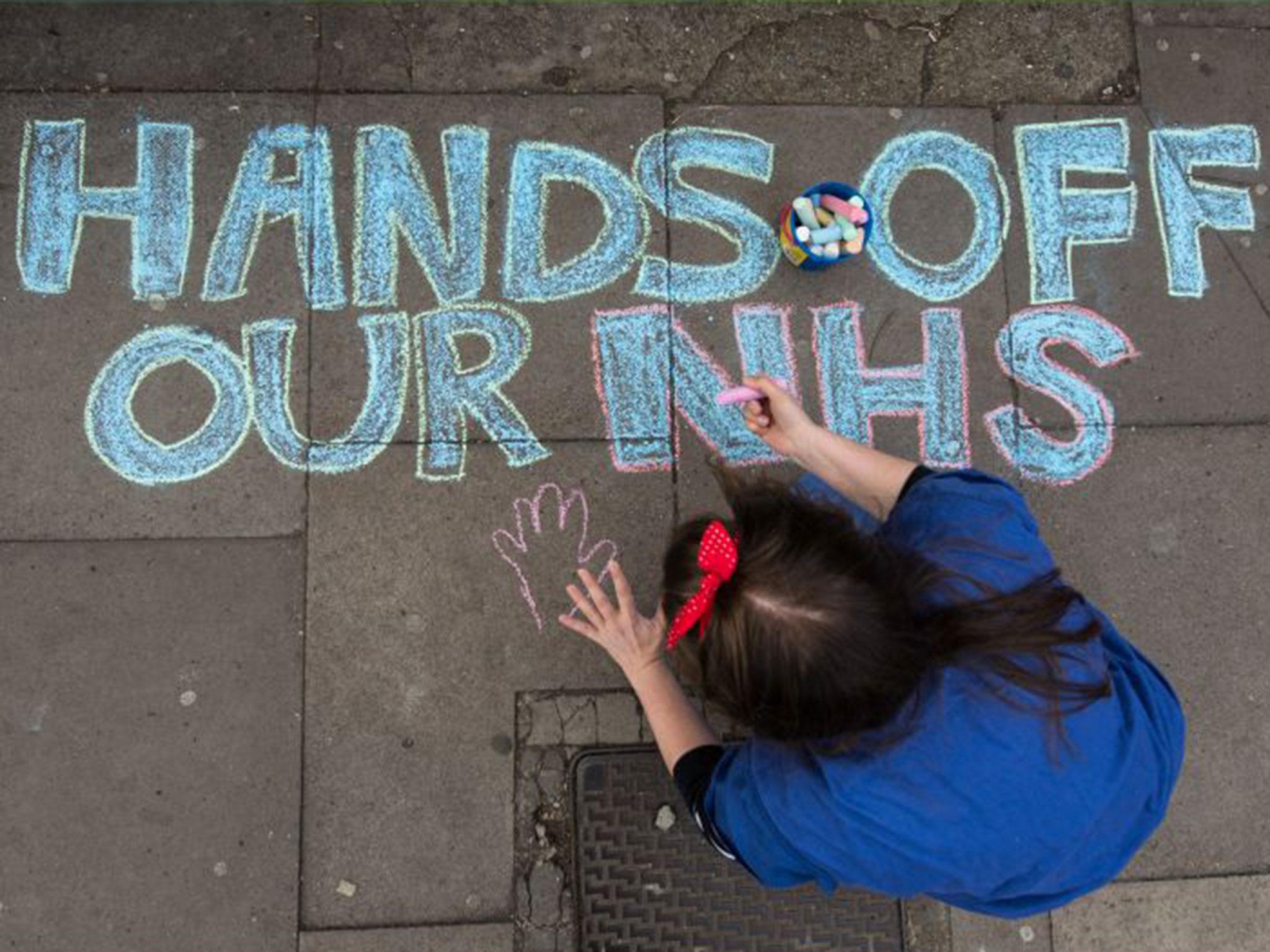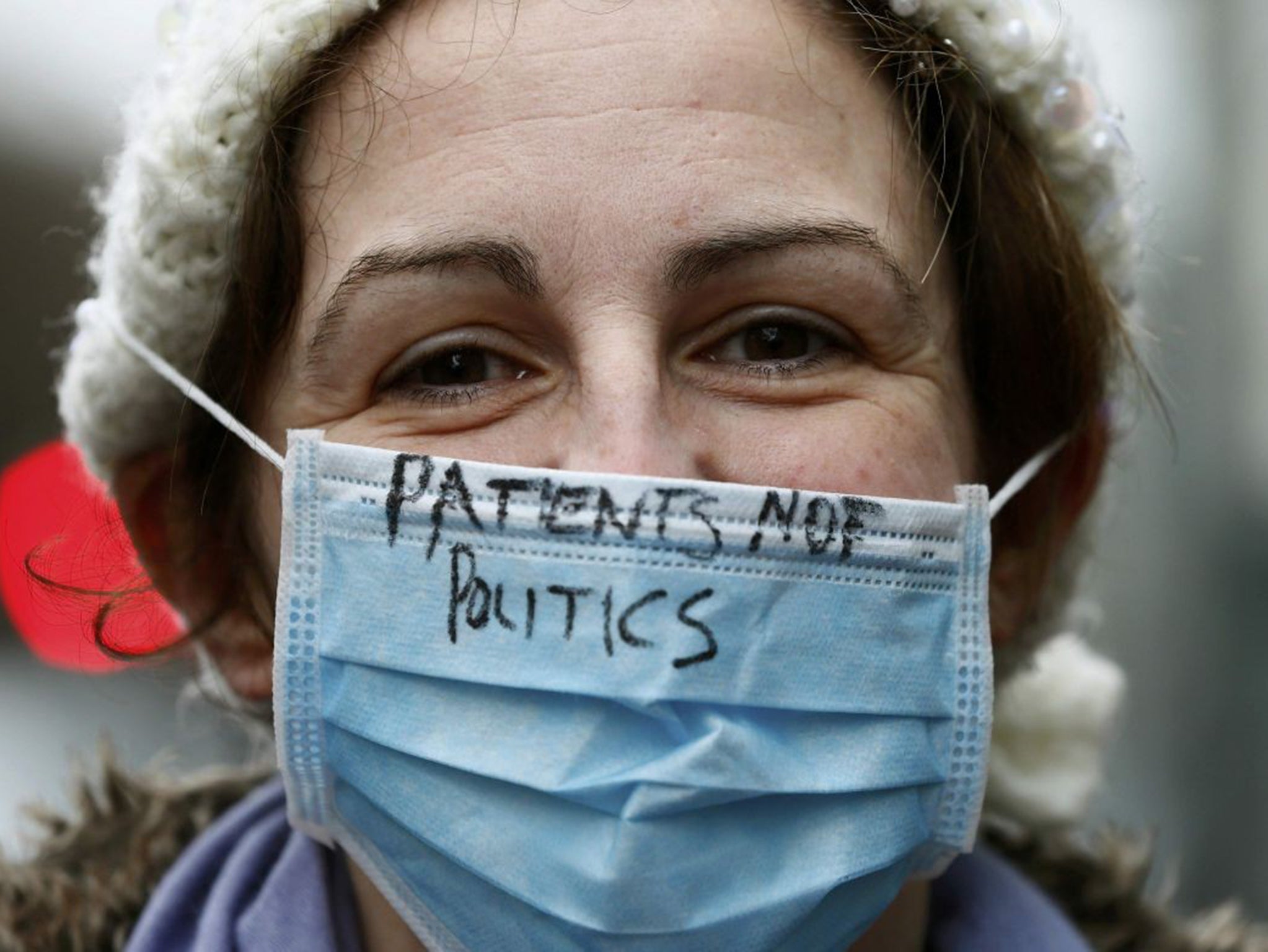Junior doctors seek to 'rediscover common ground' with ministers in contract talks
The current talks are seen potentially the last chance for the two sides to come to an agreement

Your support helps us to tell the story
From reproductive rights to climate change to Big Tech, The Independent is on the ground when the story is developing. Whether it's investigating the financials of Elon Musk's pro-Trump PAC or producing our latest documentary, 'The A Word', which shines a light on the American women fighting for reproductive rights, we know how important it is to parse out the facts from the messaging.
At such a critical moment in US history, we need reporters on the ground. Your donation allows us to keep sending journalists to speak to both sides of the story.
The Independent is trusted by Americans across the entire political spectrum. And unlike many other quality news outlets, we choose not to lock Americans out of our reporting and analysis with paywalls. We believe quality journalism should be available to everyone, paid for by those who can afford it.
Your support makes all the difference.The head of the British Medical Association (BMA) committe on junior doctors has said they are determined to “rediscover the common ground” with Government ministers and reach a deal in the dispute over contracts
Dr Johann Malawana told the BMA’s junior doctors conference that no agreement has yet been reached, but a more conciliatory tone had been struck.
Members of the BMA and the Government have been meeting all week to try and resolve the dispute about the junior doctors contract in England, and prevent further strike action. Talks are now running until next Wednesday.

"Our attitude in these negotiations has been not to trade grievances but to resolve them,” Dr Malawana told the annual conference in London.
"Our aim has been to rediscover the common ground that is so great but so easily neglected - the shared interest of everyone in the health service to improve care for our patients.
He added: "The temptation has been to relive the resentments, which are many, but instead we have tried to rediscover the opportunities."
But Dr Malawana said that when the changes were put to doctors 300 days ago they had hoped for a contract “that was better” but “had to start with a vision of one that was immeasurably worse”.
He said: "We have been arguing for 300 days about issues which have damaged junior doctors' morale and the quality of patient care for much longer than that, and would continue to do so.”
"It's not the 300 days, but these days that matter now. We're talking. They're listening. We're listening too.”
"If this were a movie, I'd now pull out a large envelope with the word 'deal' written on it. We're not there, and I can't even add the word 'yet' to the end of that sentence,” he added.
The negotiations are sponsored by the conciliation and mediation service Acas, and are seen as the last chance for the two sides to come to an agreement.
The BMA has said any deal would need to be put before junior doctors in a ballot, which could take several weeks.
It comes after the government indicated it would be imposing the contract from this summer if the talks failed.
Acas chair Sir Brendan Barber said the talks had been conducted in a "constructive and positive atmosphere", according to BBC News.
"This is a strictly time limited extension and represents a final opportunity to find an agreement as the basis for the resolution of this difficult dispute," he added.
The dispute between the government and the BMA led to four strikes by junior doctors in England affecting routine care between January and April.
In April there were two one-day strikes affecting all forms of care including emergencies – the first all-out strike in the history of the NHS.
Additional reporting by Press Association.
Join our commenting forum
Join thought-provoking conversations, follow other Independent readers and see their replies
Comments